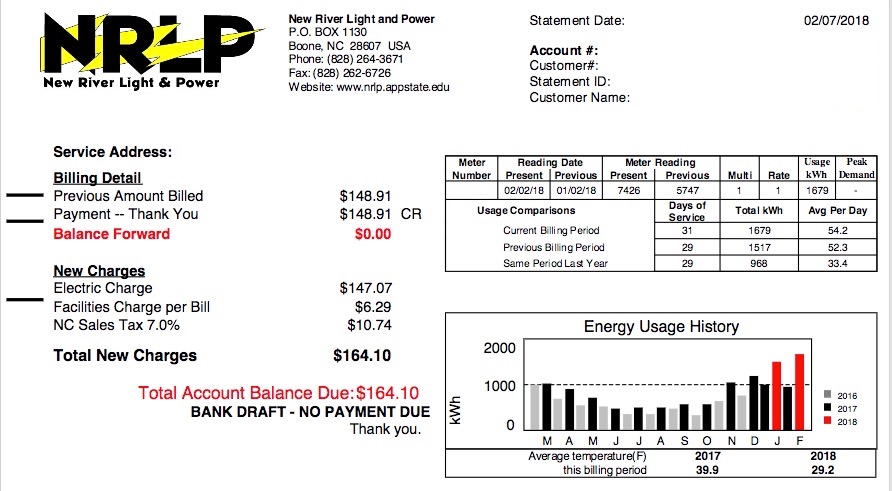Learn about how to pay your bill, how to set up auto payment, how to cancel account and contact customer support for nrlp bill pay by using the official links that we have provided below.
New River Light and Power – Login
https://billing.nrlp.appstate.edu/
Forgot your password? Click Here. Add Site To Homescreen. ©Copyright 2015. New River Light and Power. All rights reserved. PO Box 1130, Boone, NC 28607.

Pay Bill Online/Customer Portal | New River Light & Power
https://nrlp.appstate.edu/pay-billcustomer-portal
Pay Bill Online/Customer Portal Click Below to Register or Log In Customer Portal Track Your Energy Usage Through the NRLP online portal, customers can track their daily energy usage. The charts and data can give insight into energy use habits and can help you make more informed decisions about your energy use.
Frequently Asked Questions
Does NRLP collect payments at customer’s location?
• NRLP does not collect payments at customer’s location. • NRLP’s telephone number is a local number (828-264-3671), NRLP does not have an 800 number. If you receive a call from someone claiming to represent NRLP, please contact Boone Police at 828-268-6900.
How do I sign up to receive NRLP energy usage notifications?
Similar information can be found on NRLP’s mobile app, NRLP Connect. Customers can also sign up to receive daily energy usage notifications by text or email. Click on the “Notifications” tab to access this feature. You will need your Account Number and Customer Number to set up your account.
Does New River Light and power accept credit card payments?
New River Light and Power DOES NOT accept credit card payments via email. NEVER send credit card data via email or the contact form. If playback doesn’t begin shortly, try restarting your device.
What are the ARP Rural Payments?
The $8.5 billion in ARP Rural payments will be made to providers based on the amount and type of services they provide to Medicare, Medicaid, and Children’s Health Insurance Program (CHIP) patients who live in rural areas, as defined by the Federal Office of Rural Health Policy.